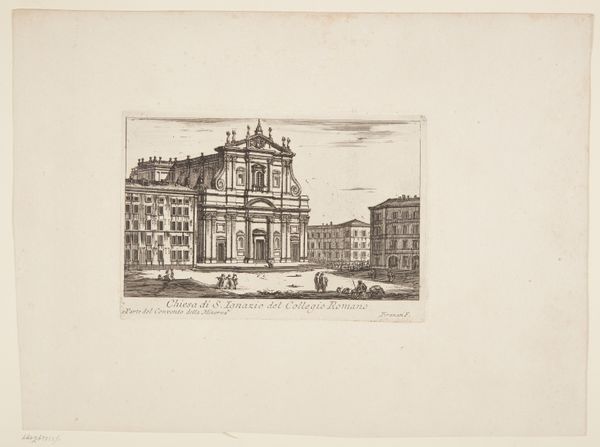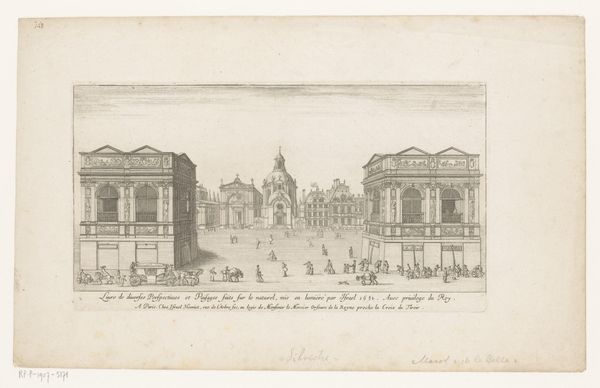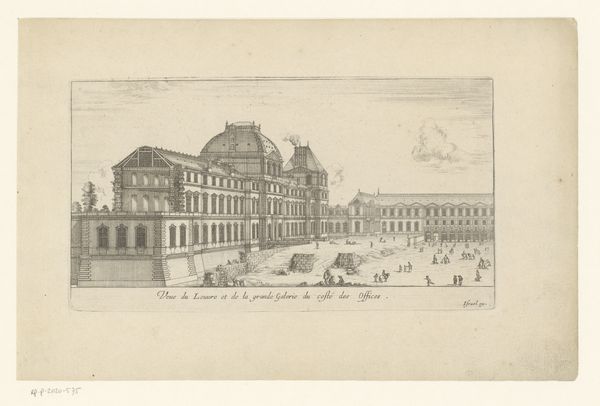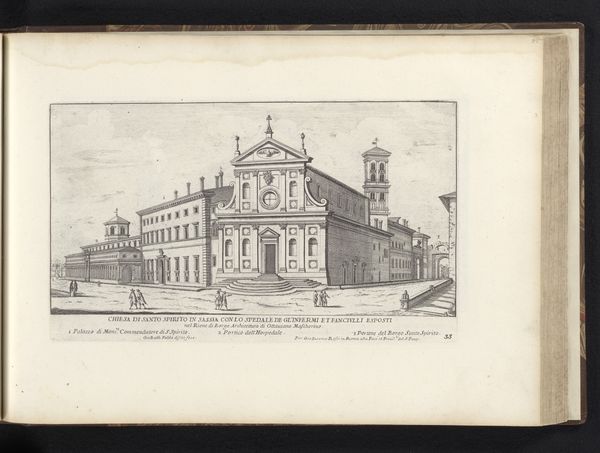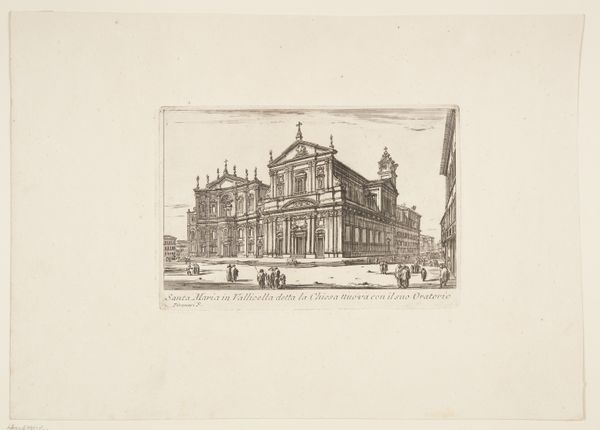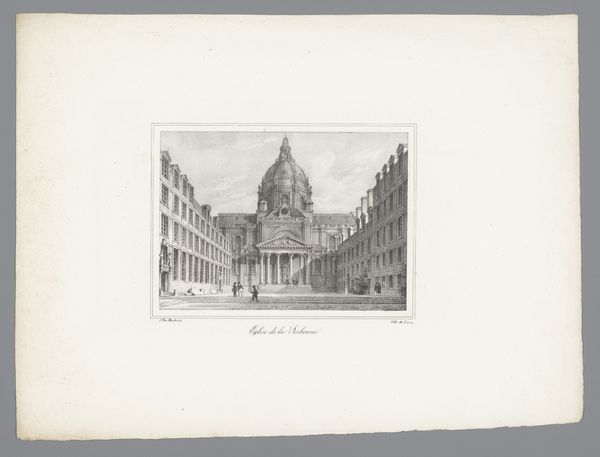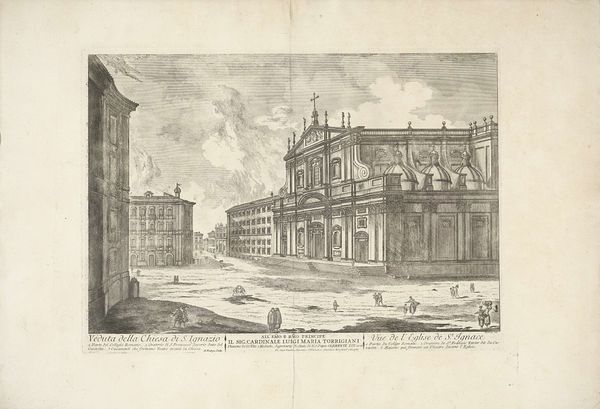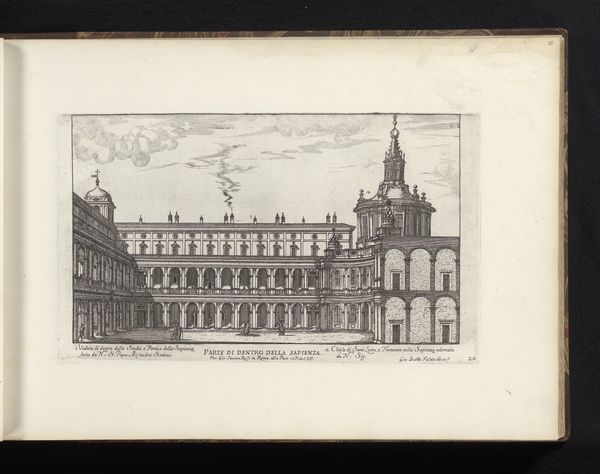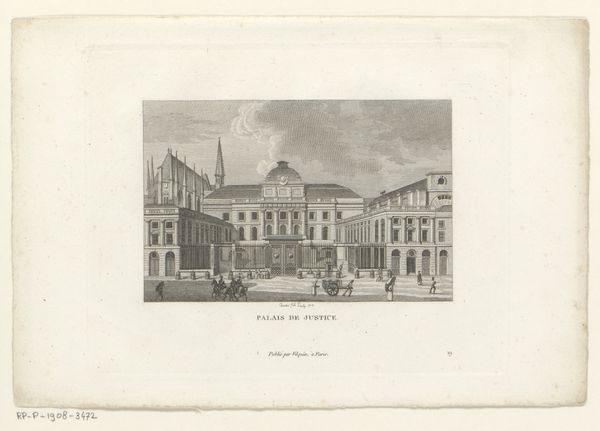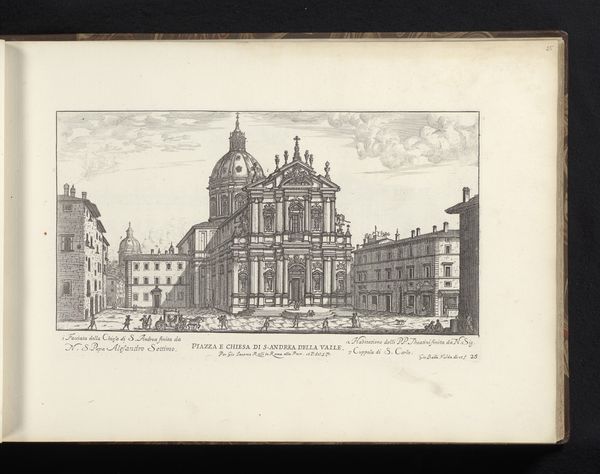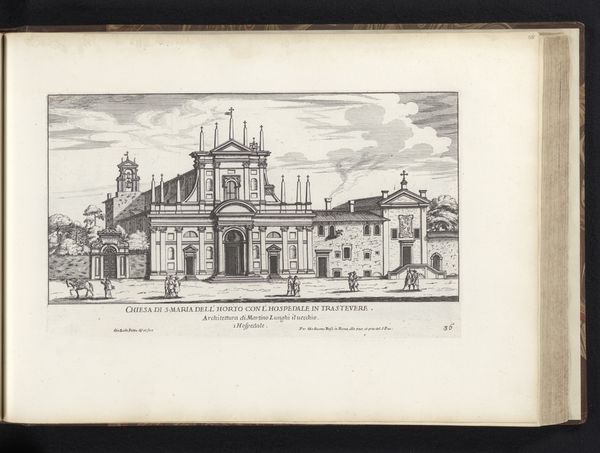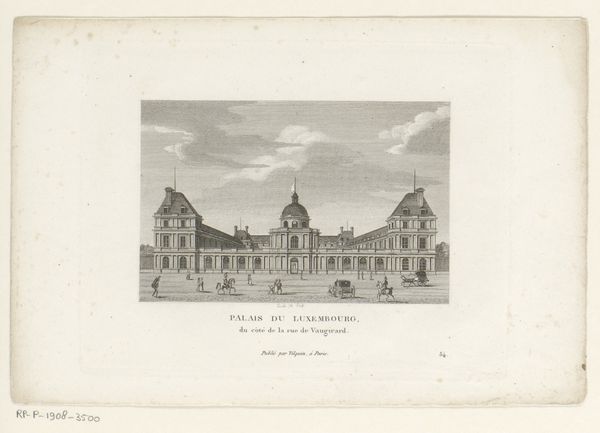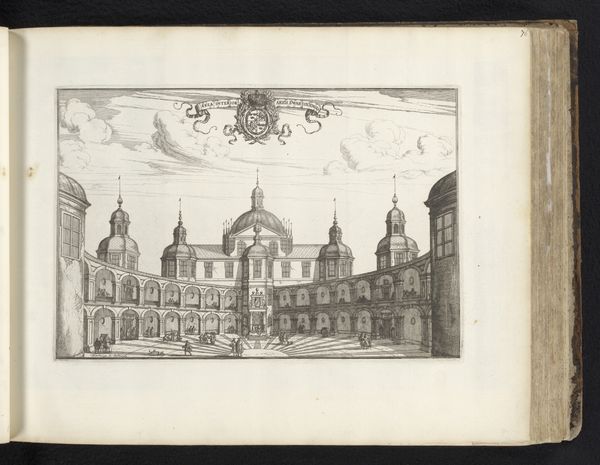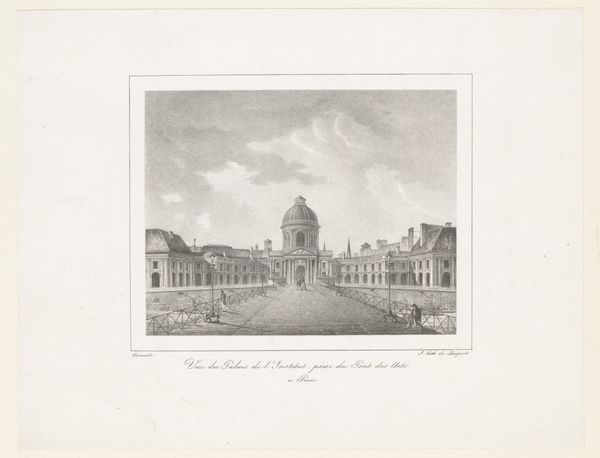
print, engraving, architecture
#
16_19th-century
#
neoclassicism
# print
#
old engraving style
#
19th century
#
cityscape
#
engraving
#
architecture
#
realism
Dimensions: height 111 mm, width 164 mm
Copyright: Rijks Museum: Open Domain
Dirk Wijbrand Tollenaar created this print of a palace in Warsaw sometime in the first half of the 19th century. The technique used here is line engraving, a printmaking process with a fascinating history. First, the artist would have used a tool called a burin to carve lines directly into a copper plate. This is painstaking work, demanding great skill and control, since every line determines the final image. The plate is then inked, and the surface wiped clean, leaving ink only in the engraved lines. Finally, damp paper is pressed against the plate, transferring the image. The character of line engraving – the precision and detail it allows – lends itself well to architectural subjects like this one. But it's important to remember the labor involved, and the way that the final print is both a work of art and a product of skilled, physical work. Considering these prints, lets us appreciate the connection between artistry, labor, and the wider world of production.
Comments
No comments
Be the first to comment and join the conversation on the ultimate creative platform.
